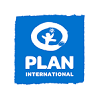UNICEF works in some of the world’s toughest places, to reach the world’s most disadvantaged children. To save their lives. To defend their rights. To help them fulfill their potential.
Across 190 countries and territories, we work for every child, everywhere, every day, to build a better world for everyone.
And we never give up.
For every child, EDUCATION
How can you make a difference?
The Specialist provides support to country office colleagues and internal and external partners and stakeholders throughout the programming processes by providing technical, administrative and operational support to ensure that adolescents’ access to quality education and skills and child rights established under the Convention on the Rights of the Child, international treaties/framework and UN intergovernmental bodies, are integrated in UNICEF’s advocacy, policies, programmes and humanitarian work.
The Specialist contributes to achievement of concrete and sustainable results on adolescents’ access to quality education and skills according to plans, allocation, results based-management approaches and methodology (RBM) and UNICEF’s Strategic Plans, standards of performance and accountability framework.
Summary of key functions/accountabilities:
- Support Adolescents’ Education and Skills programmes development and planning;
- Programme management, monitoring and delivery of results
- Technical and operational support to programme implementation
- Networking and partnership building
- Innovation, knowledge management and capacity building
To qualify as an advocate for every child you will have…
- An advanced university degree (Master’s or higher) in one of the following fields is required: education, psychology, sociology, or another relevant technical field.
- A minimum of 5 years of relevant professional experience in education, social science, programme development, planning and management.
- Experience working in a development programmes is considered as an asset.
- Relevant experience in a UN system agency or organization is considered as an asset.
- Developing country work experience and/or familiarity with emergency is considered an asset.
- Fluency in English and Portuguese is required. Knowledge of another official UN language (Arabic, Chinese, French, Russian or Spanish) or a local language is an asset. Knowledge of Italian is an asset.
For every Child, you demonstrate…
UNICEF’s values of Care, Respect, Integrity, Trust, and Accountability (CRITA) and core competencies in Communication, Working with People and Drive for Results.
The functional competencies required for this post are…
[insert functional competencies]
View our competency framework at
http://www.unicef.org/about/employ/files/UNICEF_Competencies.pdf
UNICEF is committed to diversity and inclusion within its workforce, and encourages all candidates, irrespective of gender, nationality, religious and ethnic backgrounds, including persons living with disabilities, to apply to become a part of the organization.
UNICEF has a zero-tolerance policy on conduct that is incompatible with the aims and objectives of the United Nations and UNICEF, including sexual exploitation and abuse, sexual harassment, abuse of authority and discrimination. UNICEF also adheres to strict child safeguarding principles. All selected candidates will be expected to adhere to these standards and principles and will therefore undergo rigorous reference and background checks. Background checks will include the verification of academic credential(s) and employment history. Selected candidates may be required to provide additional information to conduct a background check.
Remarks:
Mobility is a condition of international professional employment with UNICEF and an underlying premise of the international civil service.
Only shortlisted candidates will be contacted and advance to the next stage of the selection process.
UNICEF is committed to diversity and inclusion within its workforce, and encourages qualified female and male candidates from all national, religious and ethnic backgrounds, including persons living with disabilities, to apply to become a part of our organization.
More Information
- Job City Luanda



